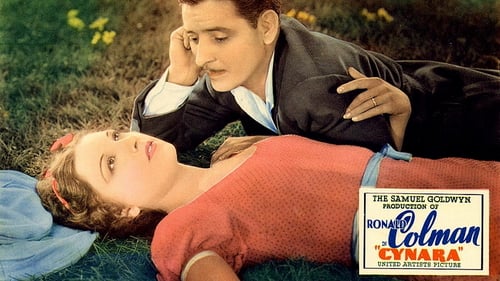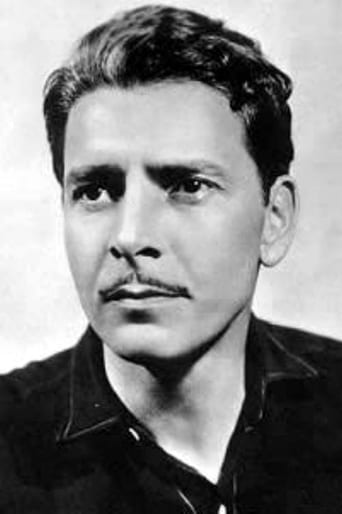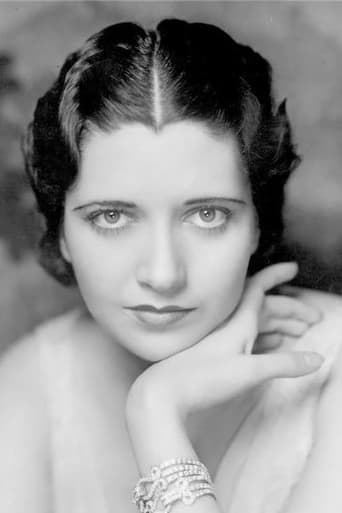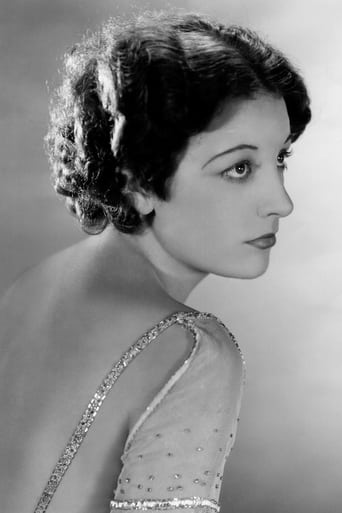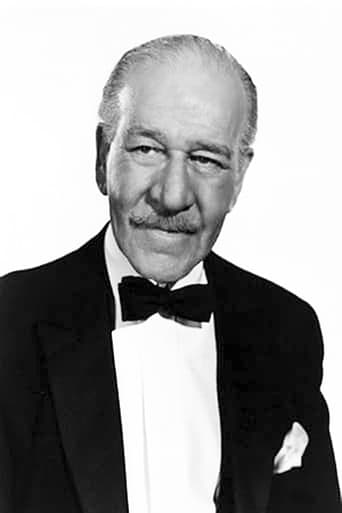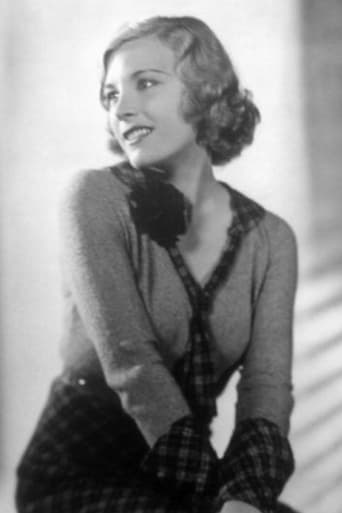Hellen
I like the storyline of this show,it attract me so much
SunnyHello
Nice effects though.
Intcatinfo
A Masterpiece!
Kien Navarro
Exactly the movie you think it is, but not the movie you want it to be.
mark.waltz
"Women marry men they hope they can change, and men marry women whom they hope will never change". So says the wise, aging scoundrel played by Henry Stephenson, giving a terrific performance in this lavish looking Goldwyn film that features a story similar to Selznick's 1939 classic "Intermezzo", that of a decent man (Ronald Colman) who finds himself involved with another woman while married to a wonderful woman and separated from her. The separation comes because of the wife's (Kay Francis) silly younger sister (Florine McKinney), escorting her to Italy on a whim on the day before Colman and Francis's seventh anniversary. Stephenson takes Colman out to dinner where they meet two young women (Phyllis Barry and Viva Tattersall) and spend a night out on the town with them. Barry falls head over heels in love with Colman who warns her about his situation, but she cannot allow herself to go. Unlike Ingrid Bergman in "Intermezzo", Barry is emotionally immature, even if she's not an outwardly silly creature like McKinney, and the story indicates that nothing inappropriate occurs during the times Colman and Barry are together.As he would do in his string of independent films of the 1930's, Samuel Goldwyn (along with director King Vidor and their artistic team) creates a very lavish fantasy like setting, with sensational glamorous restaurants, beautiful parks with lush greenery and art decco houses and other locales. From the reviews I've read, this has been referred to as being greatly dated, but the only thing I find perhaps dated about it is the fact that all three people involved in the situation are incredibly nice, although Barry's final act shows her to be an already troubled girl who needed more maturing before entering into any kind of serious relationship regardless of the other person's marital status. Francis gives her usual professional performance, noble yet not long-suffering, understanding yet not shocked when the revelations come out. Stephenson's character reminds me of the lovable old coots that Charles Coburn would later become famous for, and he steals every scene he is in with wit, wisdom and a touch of an "I've been there, done that...several times" attitude. As for Barry, she instills her young character with a love of life in the zest of youth that is hiding an inner sadness, indicating that past affairs have not been fulfilling and that she's either doomed to end up alone...or simply just doomed. A surprising climax has the previously vivacious Tattersall confronting Colman over an acting towards Barry, showing a great loyalty and moral code that you didn't expect to come from her. While looking at gossip column reports on affairs today, this might seem a bit unrealistic, but this is a view of a different kind of affair, one where the outcome is about companionship and the avoidance of loneliness rather than one of strictly sexual pleasure. Today's audiences might laugh at such an operatic view of old school scandals, but there are many lessons here to be learned, from the art of personal grace to the meaning of what true love really is, and ultimately, what keeps a marriage together even beyond the worst of situations.
drednm
Sad pre-Code film about adultery and its effects on the people involved has Ronald Colman starring as a British barrister happily married to Kay Francis. She goes off to Italy to save her silly sister from getting involved with the wrong man. Ironically, that leaves Colman easy prey for a conniving shop girl (Phyllis Barry) he meets by chance.Although she knows he's married and nothing can come of their affair, she relentlessly pursues him and he falls for her. She loses her job and becomes totally dependent on him. He tries to break if off just as Francis returns from Italy but with tragic results.Colman is excellent as the intelligent man who falls prey to temptation. Francis is wonderful as the wounded wife, and Barry is good as the conniving Doris. Co-stars include Henry Stephenson as the randy friend who starts all the trouble, Florine McKinney as Garla the silly sister, Viva Tattersall as Millie, Paul Porcasi as the restaurant owner, Halliwell Hobbes as the official, and Elspeth Dudgeon as Mrs. Weeks.There's also a clip from a Charlie Chaplin movie.
Martin Bradley
Ronald Colman may never have been better than as the happily married barrister who foolishly embarks on an extramarital affair with a young shopgirl, (Phyllis Barry), in King Vidor's now totally forgotten "Cynara". Made pre-Hays Code this is one of Vidor's best and certainly least known films that treats the subject of adultery with surprising frankness as well as a considerable degree of tenderness. Excellent work, too, from that very fine and underrated actress Kay Francis as the wronged wife and Henry Stephenson as Colman's older friend who is largely responsible for driving Colman into the younger woman's arms. Seek this one out.
calvinnme
There's nothing really remarkable about this film - A normally respectable man has an affair when his wife is away and the worst possible outcome for everyone involved occurs. As always, of course, the devil is in the details.I actually felt rather bad for Jim (Ronald Colman), a respectable barrister with a good marriage whose wife (Kay Francis as Clemency) takes off for Venice for weeks on a lark just because her flighty sister needs to be saved from herself - she's in love with a parachute jumper! She leaves Jim in the clutches of someone much more dangerous than another woman. She leaves him in the company of a lecherous older man (Henry Stephenson as John Tring) who is insistent that he drag everyone down to his level of debauchery and cynicism - a level of debauchery which, at his age, and decades before the invention of that little blue pill, he can only enjoy vicariously through the acts of others. When John and Jim go out for dinner John invites two young girls over to join them - amidst much protest from Jim - and practically pushes one of them (Phyllis Barry as Doris) into Jim's arms. Nothing happens that night, but Doris has her cap set for Jim even knowing he's a married man. Once she finally gets Jim inside her flat weeks later, Doris nags the poor guy to the point that I'm sure he's willing to bed her just to shut her up. Doris would have made a great time share condo saleswoman had she lived in modern times.So the two have their affair with the understanding that it will end when Clemency returns. Doris has Jim's body but she'll never have his heart, so to speak. But then Clemency returns and Jim lives up to the agreement they've had all along and ends the relationship, though not without some pain of separation as he has grown to care for the girl. Doris poisons herself rather than live on without Jim. Now Jim should have seen this coming when Doris went all Ophelia on him when they were on one of their weekends in the country, with her crying about how the trees must be so sad when lovers never return to enjoy them??? The inquest goes hard on Jim, although I'm not sure why there even is one since Doris obviously poisoned herself according to the police and Jim was miles away at the time. Apparently, 80 years ago, it would have made a difference in public opinion - all important for a barrister - if Jim was not Doris' "first". Doris told him that he wasn't as part of her initial sales pitch, but he is just too much of a gentleman to say so in court when asked that very personal question. He is thus presumed to be the deflowerer of an innocent young shop girl and, although not criminally responsible, any hope for a career or even social acceptance is over.So this is where we started and this is where we leave off. Jim has been recounting the entire story to Clemency before he leaves for South Africa to start again where he is not known. Will she go with him or start over without him? And since up to now she has decided to leave Jim what or who - if anything - will change her mind? That much I'll leave for you to find out.Before you think me too hard on Doris let me just say that I am a woman, not a man, so I watched this from the sympathetic eye of a woman who was once a girl, been there, done that. Believe me, even young women can tell when a man is just unhappy versus unhappily married. The people to watch out for are the evil people in this world such as John Tring who want to drag everyone down to their level yet see themselves as civilized, the silly people like Clemency who will leave a treasure on the sidewalk and just assume it will be there when they get back, the even sillier people like Clemency's sister who is doomed to marry the wrong man - it's just a matter of time, and finally those who won't level with themselves like Doris. Put all of these people together and even a basically decent man like Jim is bound to succumb to his human weaknesses.

